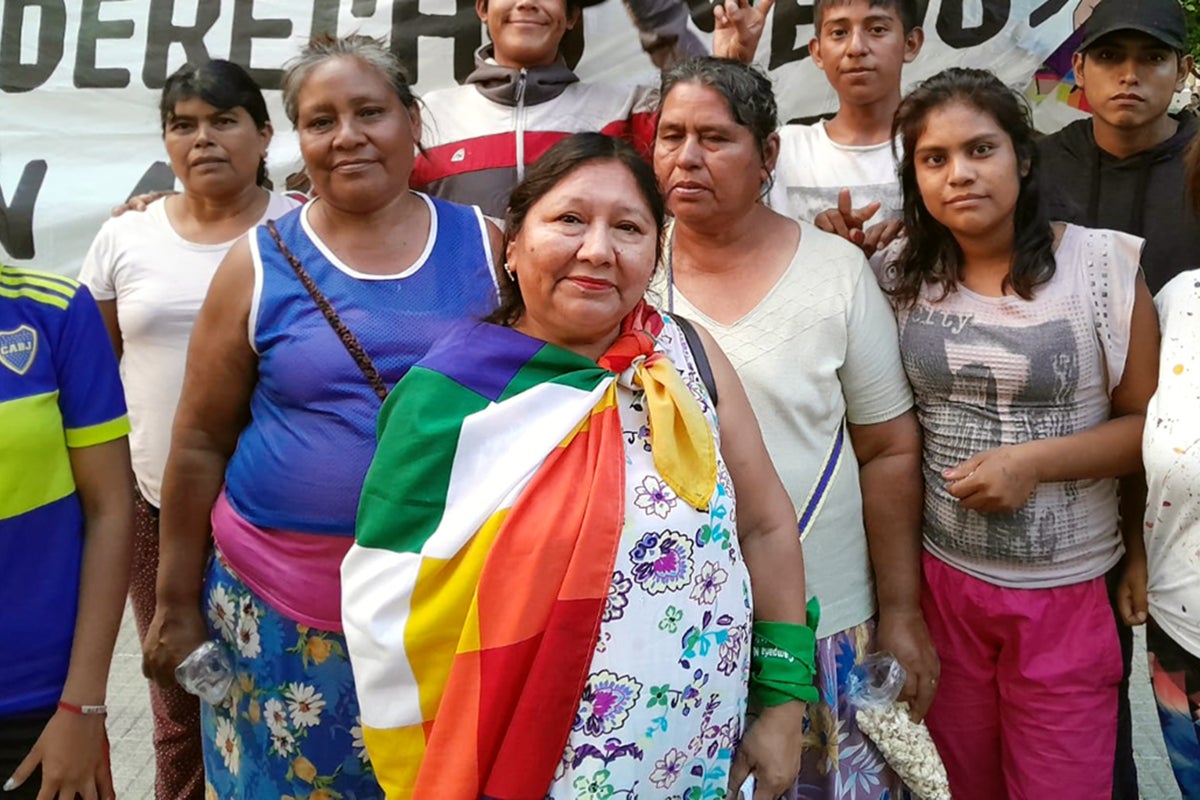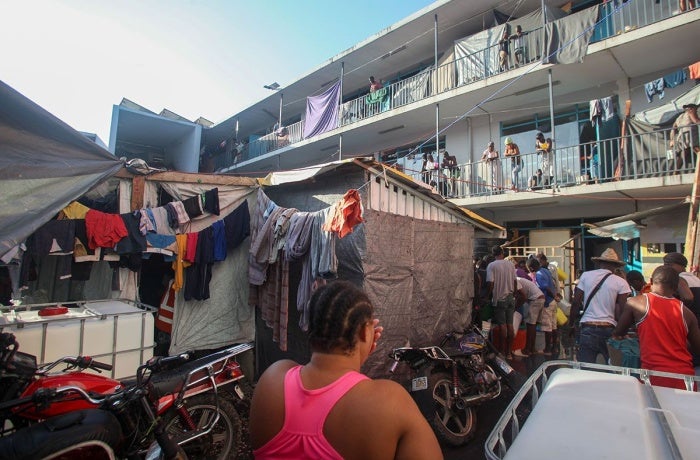Interview with Irene Cari: How indigenous and feminist women’s groups in Argentina are rising to stop racist sexual violence and femicide
“Chineo” is a racist, colonialist practice dating back to the Spanish conquest, allowing white men to gang rape indigenous women or underage girls with impunity.
The crime persists in many parts of Argentina, and the indigenous and feminist movements in the country are campaigning to put an end to it.
"The stamp of chineo tears the identity and dignity of women and girls. Their feelings are made invisible and silenced”, said Irene Cari.

UN Women spoke with Irene Cari, an indigenous activist from the province of Salta in northern Argentina, about violence against women in Argentina and how to prevent it. In 2014 Cari founded the Women’s Forum for Equal Opportunities, an association that supports women and girls experiencing abuse, including sexual abuse. In 2022, she participated in the Third Parliament of Indigenous Women and Diversities for Good Living in Salta, which UN Women supported. She was also a member of the Civil Society Advisory Group of the United Nations Spotlight Initiative, which funds innovative grassroots programmes to end violence against women and girls around the world.
Justice for racist and sexist violence against indigenous women and girls in Argentina
“The voices of Indigenous women cannot be silenced as these sexual violations [persist]…It wasn’t until 2009, when the Law No. 26,485 was passed, that we were able to speak out more on this issue.”
Law No. 26,485 of Integral Protection of Women recognized women’s right to live without violence and access legal help and comprehensive care.
UN Women’s global research shows that progressive laws matter – The countries that have passed laws to stop domestic violence, have lower rates of intimate partner violence (9.5 per cent compared to 16.1 per cent).
“Today, Indigenous women are determined to break the sexist, racist stereotypes that have labeled us as the poor, the invisible ones, who do not speak Spanish, and who do not dress in western clothes.”
“Women’s rights are universal rights”, said Cari.
Women’s organizations like Women’s Forum for Equal Opportunities and the Las Macachas network have made the issue visible through their outreach and prevention activities.
Their efforts have shown some promising results: in 2014, the State of Salta declared a social emergency due to gender violence and expanded services for survivors. More recently, the Government of Salta has publicly denounced “chineo” as child sexual abuse, however no law specifically addresses the crime.
The women’s movement is asking the State to classify “chineo” as a hate crime and systematic sexual violence, punishable under the law, and funds for recovery of the victims and to support prevention efforts.
Unabated, violence against women escalates to femicide – deliberate killing of women because of their gender
“Violence is rooted in the daily lives of families, and in social and cultural practices in our province”, said Cari. “Underestimating women and using violent language against them is normalized.”
Cari mentioned some cases where existing laws are broken when it comes to protecting women from gender-based violence. And, unabated, the violence escalates.
“The most recent case of femicide occurred when a woman called the emergency number asking for help, because of threats from her former partner”, shared Cari. “The police arrived at the scene, but did not act when the man escaped. Within hours, he returned and killed her.”
Cari points to the failure of the authorities in activating existing prevention measures and evaluating the risks when complaints of violence are made by women.
Since a legal reform of the Penal Code in 2012, the killing of a woman in the context of gender-based violence is punishable with life imprisonment, although Argentina does not have a specific law on femicide.
“Femicides haven’t stopped, although they are preventable and avoidable”, said Cari. “Across Argentina, in 2023, there were 250 victims of femicide. In the province of Salta, 20 femicides have been recorded so far this year.”
Cari and other feminists recommend examining the results of the application of the gender-based violence legislation in the province of Salta over the past 10 years and transforming public policies accordingly. They also stress on economic empowerment of women, “since equality includes overcoming women’s poverty.”
“We need funds to promote women’s participation – not only in public policy making, but also to participate in elections”, she said, pointing to the need for feminist voices who can advocate for stronger policies to curb gender-based violence and the intentional killing of women.
“But violence and political harassment [against women in politics] is very strong. It’s not easy, being a woman, a politician, and indigenous. By raising our voices, we risk becoming one more femicide.”









